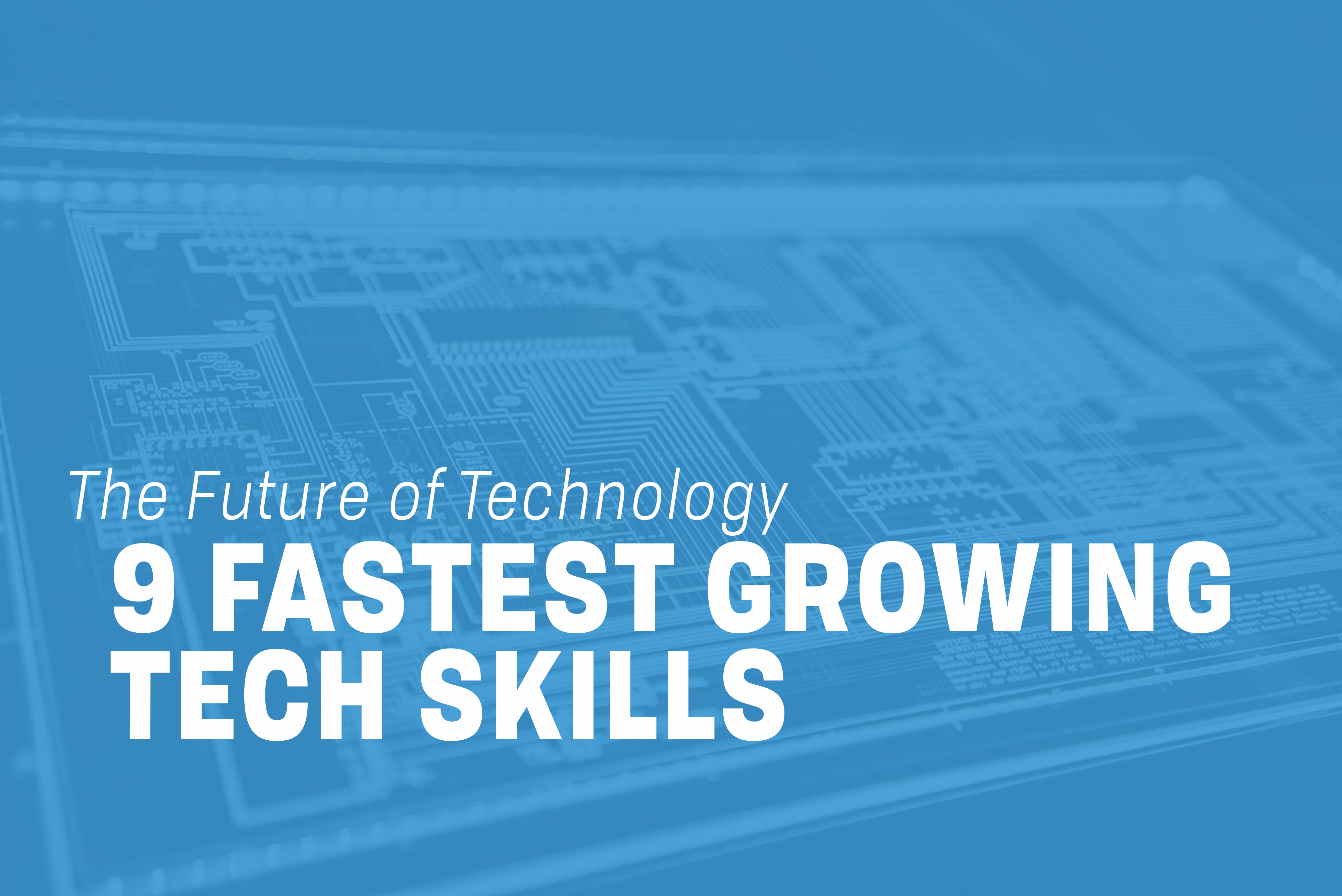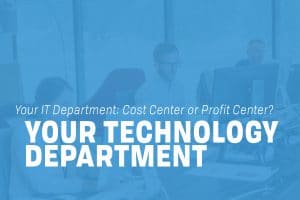Technology is one of the fastest growing fields of the modern age, with new innovations appearing almost daily. While it can feel overwhelming to try and keep with it all, there are a lot of things you can do as an IT professional to develop new skills and maintain a competitive edge in your industry. In this article, we’ll discuss 9 of the fastest growing tech skills in today’s world and how they can help you succeed in the IT industry.
1. Blockchain
Block chain is currently at the top of LinkedIn’s list for the hard skills that will be in highest demand in 2020. According to LinkedIn, Blockchain is in most demand in the UK, USA, Australia, Germany, and France.
Blockchain is a distributed ledger that stores digital information regarding transactions. Each block has a unique code that allows programmers to tell it apart from other blocks. After you make a purchase, a network of computers verifies this purchase and then stores the transaction information in a block, where it becomes publicly available to anyone—including you.
Ever since its dissociation with cryptocurrencies, Blockchain has seen increased demand on a global level. Last year, Indeed had very few job candidates interested in Blockchain, but now employers are showing a huge demand for this skill.
2. Big Data Analytics
Certifications and skills relating to big data analytics have grown in market value every quarter in the last two years. These analytics use advanced techniques to manage and process large and complicated data sets.
According to iTransition, experts predict that data volumes will continue to grow in the next few years, reaching 175 zettabytes by 2025. To put this in context, 1 zettabyte is equivalent to 1 trillion gigabytes. That’s a lot of data.
To help manage such large amounts of data, businesses and cloud companies will be looking to experts who understand big data analytics. This technology will become more critical than ever, as the demand for storage and backup continues to rise.
3. Artificial Intelligence
Artificial intelligence (AI) is a range of computer science whose job is to build smart machines. Machine learning is a subfield of AI involving computer systems and algorithms. These machines teach themselves how to make predictions and progress in their particular functions, all without being programmed to do so.
Artificial intelligence and machine learning have already led to advances in areas such as transportation, healthcare, and robotics. In coming years, these tools will only continue to move the tech industry forward.
Autonomous systems are certainly changing the future of the workforce, but that doesn’t mean you have to be out of a job. By learning how you can implement AI into your workplace, you can increase efficiency and develop skills that will make you a better employee and candidate for future jobs.
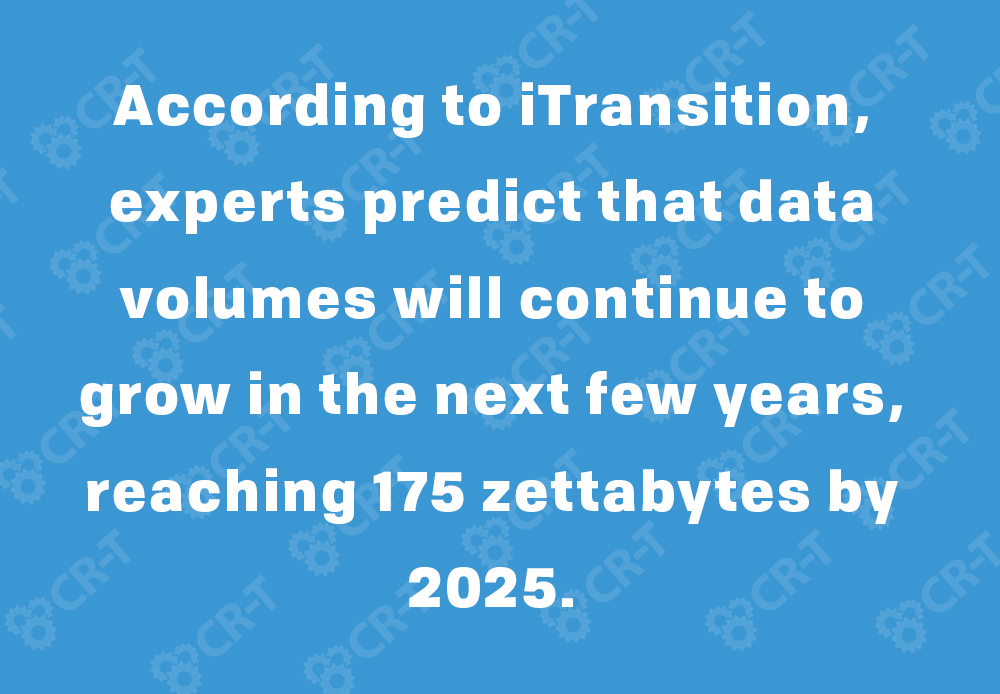
4. Cryptography
Cryptography utilizes code to limit access to sensitive information. Today, cryptography is most commonly associated with transforming plain text into ciphertext (known as encryption), and then back again (known as decryption).
Cryptography protects sensitive data online and makes it easier to send and receive information in a secure way. Certain cryptographic techniques also prevent spoofing and forgeries.
The most common forms of cryptography include single-key and symmetric-key encryption, whose algorithms create a block cipher with a secret key. The sender uses this key to encrypt the data, and the receiver uses the key to decipher it. The Advanced Encryption Standard is used today as a Federal Information Processing Standard (FIPS) to guard sensitive information.
According to Accenture, security breaches have increased by 11% in the last year. Security-based skills are in higher demand than ever before. Learning the ins and outs of cryptography is essential for organizations who need to store and transmit sensitive data. By learning this skill, you can take your organization’s cybersecurity to the next level.
5. Smart Contracts
- Financial derivitaves
- Insurance premiums
- Breach contracts
- Property law
- Credit enforcement
- Crowdfunding agreements
6. Deep Learning
Deep learning is a subfield of machine learning that focuses on neural networks, or algorithms inspired by brain function. Basically, deep learning draws on brain simulations to make learning algorithms better and easier to use.
Unlike older learning algorithms, deep learning doesn’t plateau after a certain amount of data. Instead, as larger neural networks are constructed and imbued with data, their performance continues to increase.
Deep learning has the potential to provide great value beyond traditional analytics techniques. Deep learning can increase a business’s efficiency by reducing errors, enhancing customer service, and improving the quality of a product or service.
When deciding whether to implement deep learning, consider how it could benefit your organization. Do your employees spend a lot of time on tasks that could be automated? Would you benefit from streamlining day-to-day tasks? Could AI speed up your data entry? If you answered yes to any of these questions, then it might be worth it to invest in deep learning.
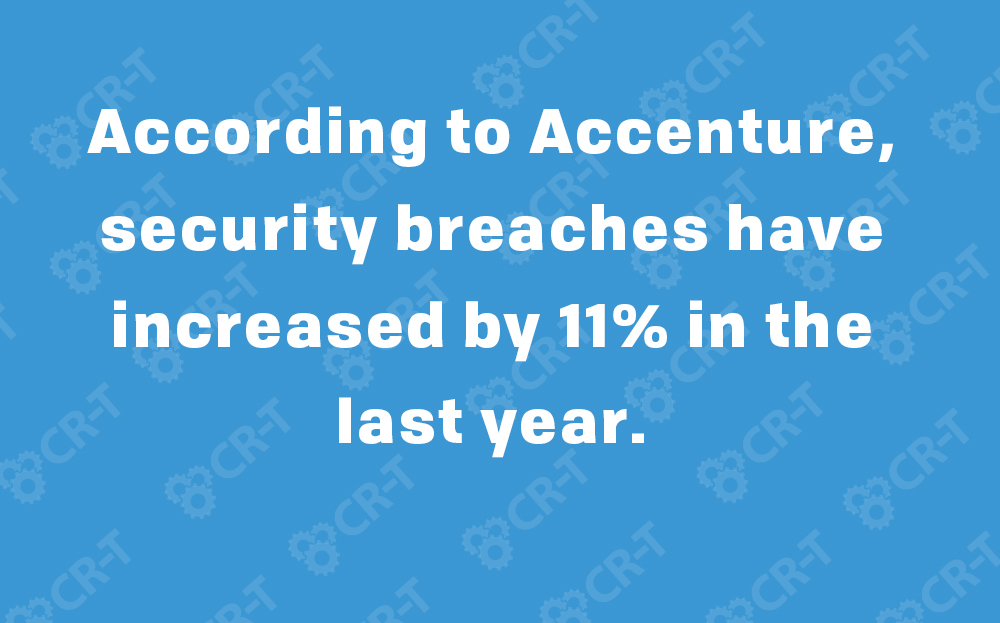
7. Prescriptive Analytics
Prescriptive analytics predicts the best future course of action, based on the available data. Unlike predictive analytics, however, it focuses on actionable insights instead of just data monitoring.
Prescriptive analytics can help you make more informed decisions by first analyzing various possible outcomes. Manufacturers, for example, can use prescriptive analytics to model prices on a variety of factors before sending products to stores. Insurance agents can use prescriptive analytics in risk assessment models before providing pricing information to clients. Pharmacists can use prescriptive analytics in selecting the best test groups for clinical trials.
Regardless of your industry, prescriptive analytics will help you come out ahead in your decision making and business models.
8. Internet of Things
- Software development
- Data analytics
- Business intelligence
- Information security
9. DevSecOps
DevSecOps integrates security within the DevOps process with ongoing collaboration between engineers and security teams. In the race to keep up with new forms of software development, DevSecOps adds the security component to a mindset of communication and continuity.
One of the greatest benefits to a DevSecOps approach is that you can integrate security during the development phase, instead of adding it on later. Additionally, DevSecOps leads to greater speed and agility for security teams, enhanced communication between team members, and early detection of vulnerabilities.
By bridging the gap between IT and security, you can enhance your organization’s current use of DevOps and deliver code in a faster and safer way than before.
Fastest Growing Tech Skills—What They Can do For You and Your Organization
Regardless of how long you’ve been in the tech industry, it’s never too early or too late to add some new skills to your reservoir of knowledge. By learning how to understand AI, or by implementing tools like DevSecOps into your skillset, you can benefit your organization and become a more valuable worker in your industry.
Here at CR-T, we take pride in providing enterprise-level IT services at prices that work for small businesses. Our team of experts can become your IT support department, responding to issues quickly, often before you even know about them. Covering everything from your servers and network infrastructure to your computers, workstations and mobile devices, we provide end-to-end solutions for all your technology needs.
Time and experience have helped us develop best practices and workflow procedures designed to keep your focus on your business, not your technology.
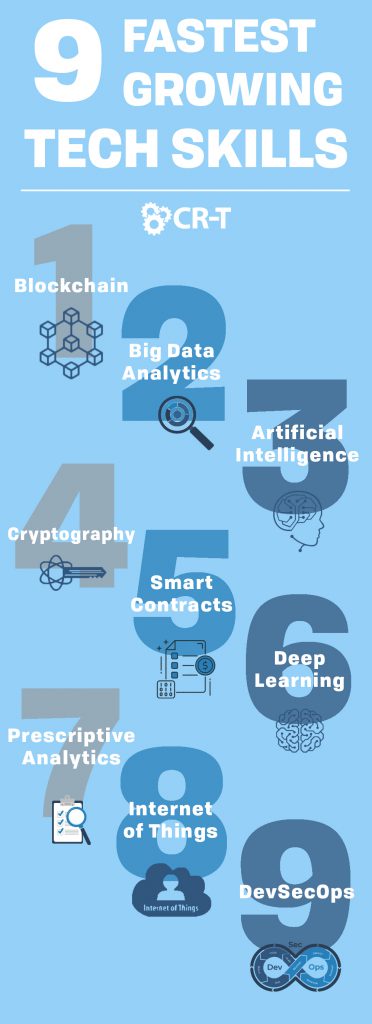
Blog & Media
Cloud Services
Managed IT Support
Cyber Security
Project Services
Servers/Infrastructure
Firewalls
Networking
Hardware/Software
Microsoft Products/Cloud
Amazon Web Services
Penetration Testing vs Vulnerability Scanning
If you’re responsible for managing the security of your organization’s network or systems, you may have heard the terms “penetration testing” and “vulnerability testing” thrown
Backup and Disaster Recovery
Your organization can’t afford to neglect backup and disaster recovery. If it takes your business too long to get back online after a disaster, you
6 Steps to Secure Customer Data
Securing customer data is essential for one major reason: your business depends on it. As an IT director, you recognize the importance of cybersecurity when
5 Steps to Promote Compliance in the Workplace
You’re familiar with the ever-changing world of regulatory compliance. Robust compliance enables you to avoid legal liabilities while improving your organization’s effectiveness. And many of


